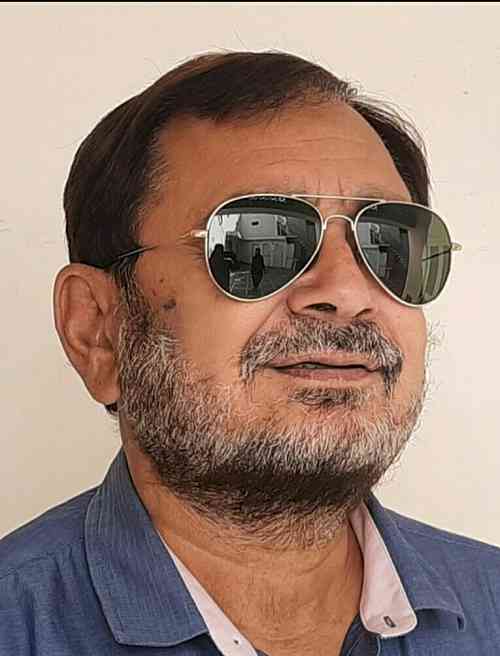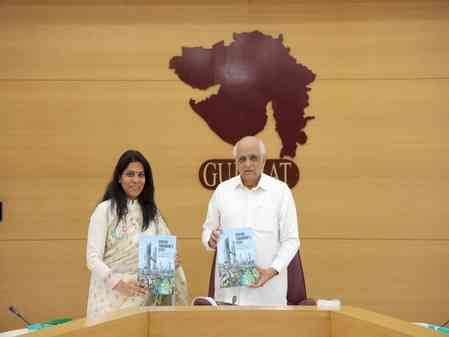OPINION: Why uproar over neglect of Hindi language in UPSC?
Author(s): Harish K. MongaIn India there are hundreds of active dialects in use. Therefore, choosing any single language as an official language presents serious problems to all those "mother tongue", is different. However, all the boards...
In India there are hundreds of active dialects in use. Therefore, choosing any single language as an official language presents serious problems to all those "mother tongue", is different. However, all the boards of education across India recognise the 'need' for training people to one common language.
Recently, there was uproar over the Hindi language by the Members of Parliament of Samajwadi Party and Rashtriya Janta Dal and they even reached to the Well of the House and disrupted the proceedings of the House. Perhaps, this is the first time in the history that there had been a dispute over the language in the Parliament and the members of the South remained mum over this.
We should not forget that we make use of language to speak and write for others; otherwise there is no necessity to speak or write.
For example, for a fraction of second, if we think about the world without the language, it would not have been as it is now. The understanding is the shortest distance between the two and understanding comes through expressing through gestures, speaking in language and writing as well.
Some scholars argue that the next great change occurred in or around 1950 with the discovery of the computer. However, while digital data processing certainly has brought changes to our society, we are perhaps too close to the date of its birth to evaluate it clearly.
The whole of human history is built upon communication. From the first story told in prehistoric times through the mass media of today, verbal communication has shaped the foundation of an existence. Everyday life is a total of routines, actions and reactions repeated day after day. Communications play important role in everyday life. For much of human history speech and body language were the only available forms of communication. This changed when writing was developed, probably around the year 3000 BC in the area of the world that we now call the Middle East. With the discovery of the computer in 1950, a great change occurred in communication and data available on the internet is English language.
However, the official language of the Central Government of Republic of India is Standard Hindi, while English is the secondary official language.
Coming to the point of nationwide resentment on giving weight to English language by Union Public Service Commission in the Civil Services exams has been said as conspiracy against the weaker sections so as to ensure that children from SC, ST and OBC background do not succeed in the civil services examination despite having the required merit. Lallu Parshad Yadav, while seeking a rollback of the decision, has said that UPSC may be a constitutional body but it was not above the government and Parliament.
Some protesters even shouted “Angrezi me kaam na hoga, phir se desh ghulaam na hoga (No work will be done in English, we won’t be slaves again)” and “Angrezi hatao, desh bachao (Banish English and save the country)”.
Such slogans have no importance, if the nation has to compete at the global level and the political class has to realise that whereas the regional language provides cultural sense, in this globalise world it is English that provides bread and butter. So, both languages have equal importance but the training of English cannot be neglected.
Glaring examples are the recruitments in the states made with the condition that the candidate must have passed the exam in regional language and if we go by the working style in the office, 90 per cent work is done in English language. Since candidates knowing English are always at an advantage when applying for jobs, it has to be adopted as the language of instructions at the root level. This is the reason that increasing enrolment in English language schools in India is in line with international trends, where English is establishing itself as the language of global commerce.
Apart from being a link language to the world, English is also an indispensable link language between Indian states. Studies have shown that knowledge of English can break down caste and gender inequalities while allowing the hitherto underprivileged to break into white- collar professions.
In fact, one should have the ability to communicate with the people, with one another and with politicians in simple and clear language. At the same time, the language may be local or regional but giving more weight to English does not make sense.
No doubt, English is a unifying language and helps officials from different parts of the country to interact at the global level. But English language is the only option for a civil servant for those who opt for posting in other states other than home state when don’t understand the local language. All governments meetings at the national and international level are held in English and an officer has to understand the issues, note the key points and then communicates his or her views clearly.
In fact, a good democracy always tries that the gap between the ruler and ruled and besides castes and geographical areas, the language is playing a major role in broadening the gap. The “bridges of liaison” are very less between language in which the people live and by the language they are ruled. The introduction of Indian languages in the UPSC was also started with this motive to remove the English language which is widening the gap but some people are not in favour of this and they want to close the doors for the bureaucrats for those people also, for whom the English is still a foreign language but they have gained the worldly knowledge in their own language.
In principal, all languages have the potential to fulfill any communication role and in the present scenario, it is difficult to run away from the English language, if we want to complete at the global level in this tech era.
(Disclaimer: The views expressed by the author in this article are his own and do not necessarily reflect the views of City Air News.)



 cityairnews
cityairnews 










